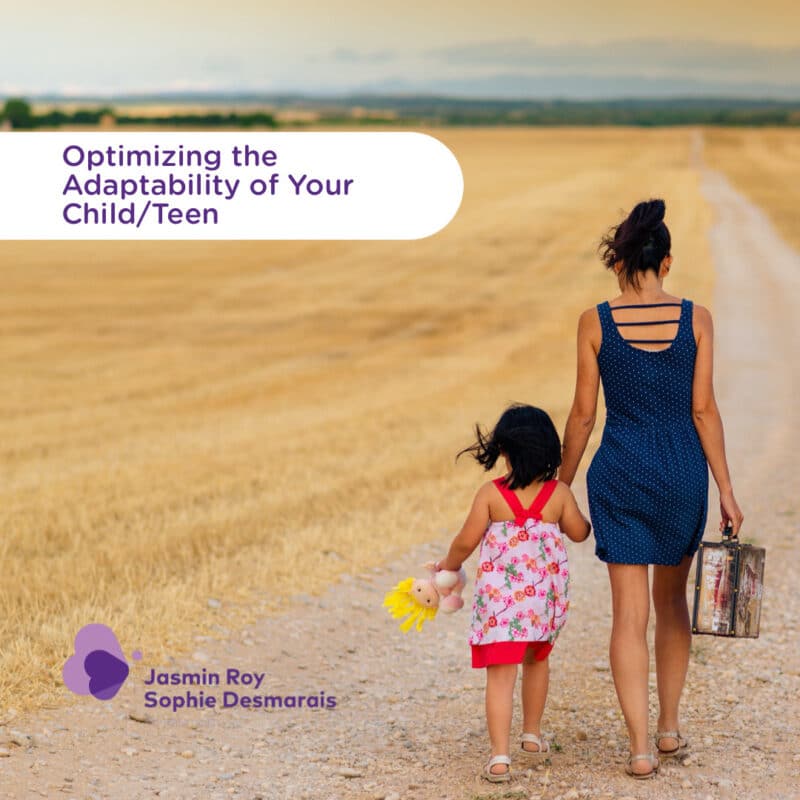Every day, an event beyond our control can disrupt our plans and the organization of our daily activities. In these moments, we see who among us can see the glass as half full or half empty to overcome this minor trial or… get stuck in the obstacle.
When this trial occurs, a reality sets in, and we must find a way to integrate it into our day before returning to the original plan.
Developing adaptability can happen at any age; it’s not just for adults or solely their responsibility. A variety of strategies can be used to help your child or teenager develop their adaptability.
First, encourage them to solve problems autonomously daily. Offer them support by asking about appropriate solutions they could implement. If they try a solution that doesn’t solve the problem, encourage them to show resilience and persevere by trying a new solution. Reminding them that failures are part of learning is essential to their development. Thus, you’ll provide an environment that encourages exploration and education while providing emotional support.
Also, please encourage them to assess a suitable solution based on various factors: the impact on them and others, the environment where the situation occurs, etc. These different perspectives are essential in developing their social and environmental awareness and everything around them. This way, they will also develop their ability to make responsible decisions autonomously.
Change might cause stress. Consider exploring stress management strategies that work for your child or teenager so they can reinvest in them when appropriate.
Explicit teaching of expected behaviors in such a situation can be effective. If needed, consider modeling adaptive behaviors, among the following, which promote a constructive and flexible approach to various life situations:
Flexibility: Being open to new ideas and ready to adjust plans according to circumstances. Being flexible in thinking facilitates adjustment to changing circumstances.
Cultivating resilience: Learning to bounce back after challenges strengthens resilience to change. Thus, one can overcome failures or setbacks and learn from them.
Accepting change: Developing a positive attitude towards change promotes adaptability.
Continuous learning: Actively seeking opportunities for learning and personal improvement.
Problem-solving: Identifying constructive solutions to challenges rather than getting bogged down in obstacles.
Autonomy: Taking initiative and being able to function independently when necessary.
Stress management: Using techniques to manage stress, such as meditation or exercise, strengthens resistance to pressures and maintains a positive perspective. Everything is in our view of the problem!
Empathy: Understanding and respecting others’ perspectives, facilitating collaboration and mutual understanding.
Adaptability: Quickly adjusting to changes without being overly disturbed.
Effective communication: Clearly express ideas and actively listen to others to facilitate mutual understanding.
Cultivating positive relationships: Strong relationships provide emotional support and valuable perspectives during difficult times.
These actions contribute to developing solid adaptability and enhancing self-confidence and mental flexibility. Your child/teenager will thank you when they have developed the ability to react autonomously in many situations.





